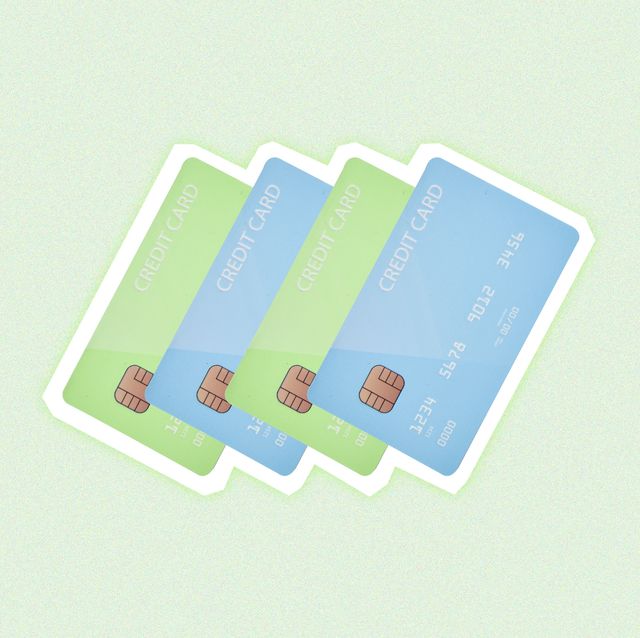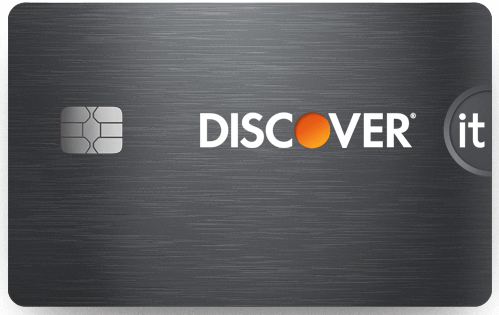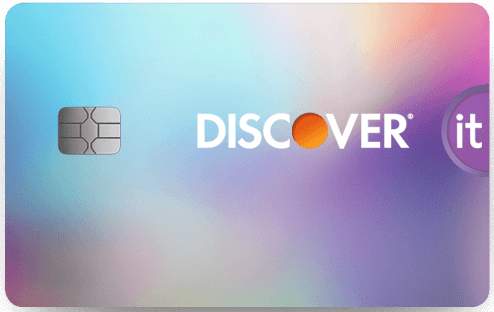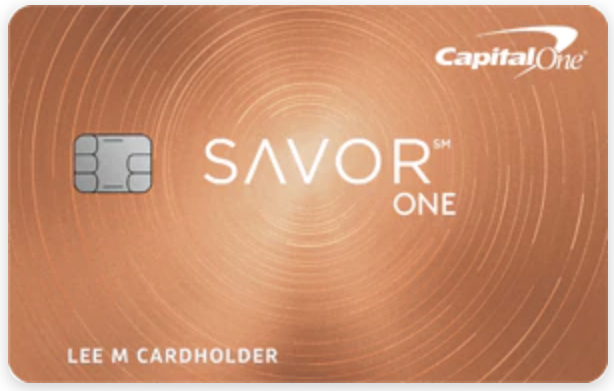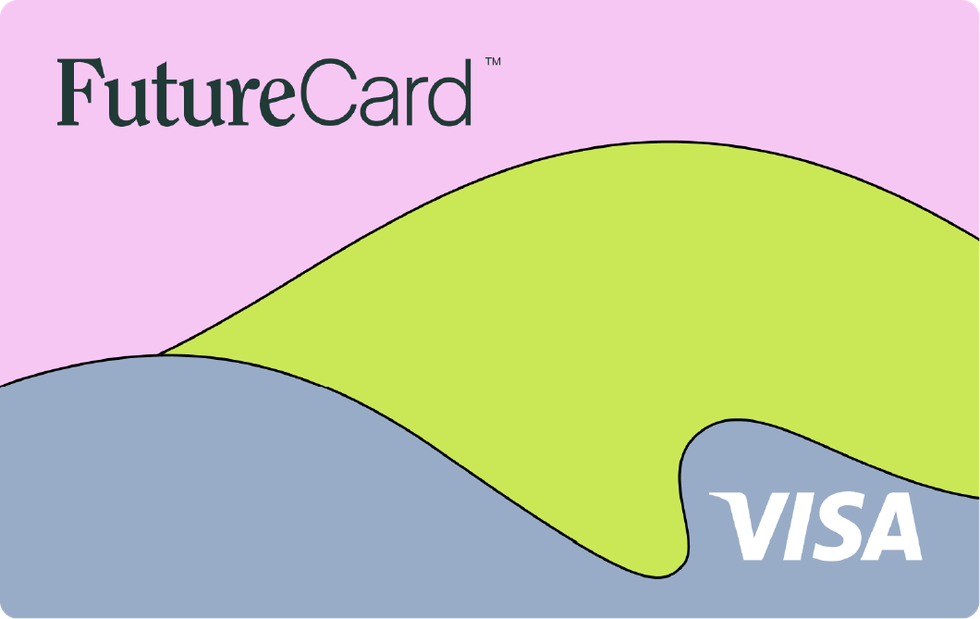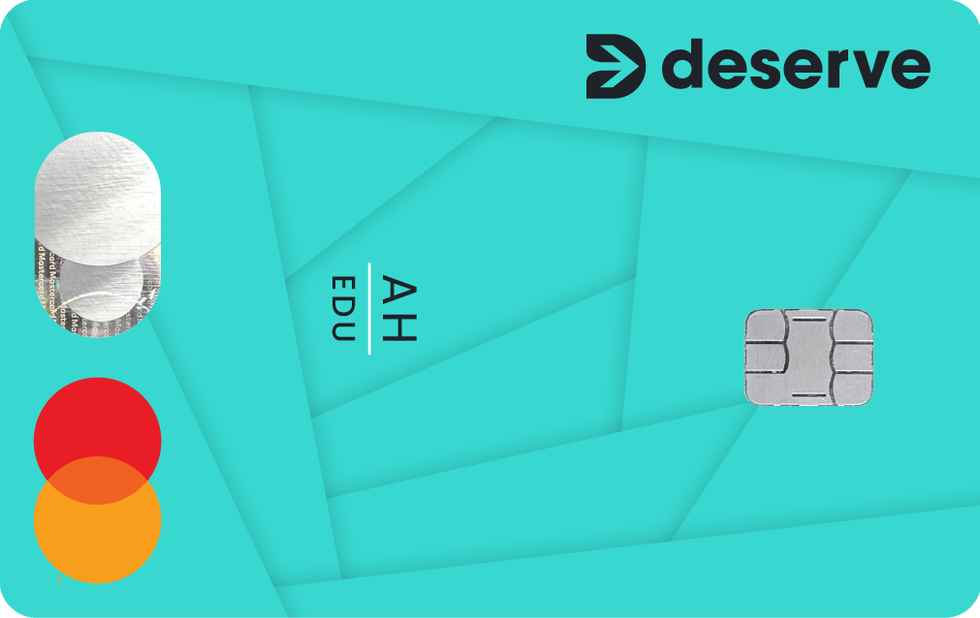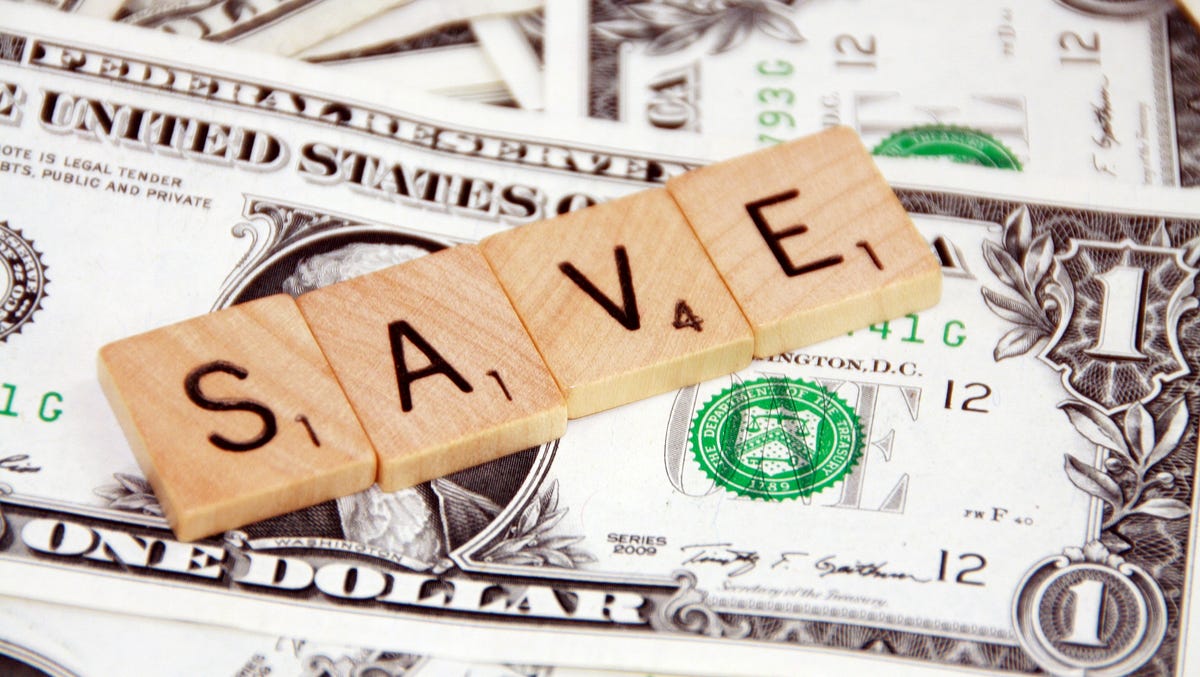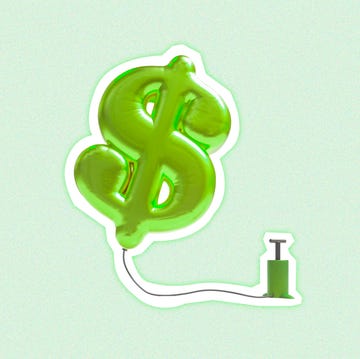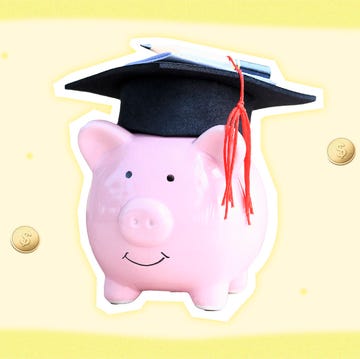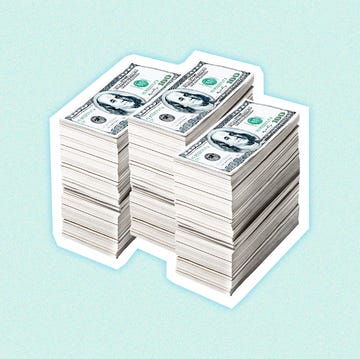Everything You Need To Know About Credit Cards for Teens
Credit cards don’t have to be scary — but you do need to be careful.
Seventeen picks products that we think you'll love the most. We may earn commission from the links on this page.
What comes to mind when you think of credit cards? Do you think of slow-motion makeover montages, armfuls of designer shopping bags, visions of dollar signs, and “Your Order Has Shipped” emails? Not so fast — getting your first credit card is a big deal (and a milestone of adulthood!) but it comes with a lot of responsibility, too.
You might have heard horror stories about racking up credit card debt, be intimidated by the process of picking out a credit card, or just not know where to start. But credit cards are actually an incredible tool to help out your future self — they allow you to build up a credit score, which you'll need if you want to rent an apartment, buy a home, or lease a car. Colleen McCreary, Chief People Officer and financial advocate at Credit Karma, explains, "A credit score is a three-digit number based on information found within your credit reports, including payment history, outstanding debt and length of credit history." A good credit score will help you up your chances of getting approved for an apartment or a lower mortgage rate in the future.
Credit cards can also help you in the more immediate term by allowing you to earn perks like cash back on your purchases (in other words, earning money for spending money) or airline miles so you can afford that spring break trip. Sound good? If you're ready for your first credit card (or trying to convince your parents that you're ready for the responsibility), here is everything you need to know about credit cards for teens.
We tapped the expertise of Vivian Tu, the CEO and founder of Your Rich BFF, to weigh in on all things credit cards. You've probably seen Vivian on your TikTok FYP, offering quick tips on everything from crypto to inflation to getting the best deals at Target. The ex-Wall Street trader gave us some A+ advice on boosting your credit score, as well as telling us about the biggest money mistake she made as a teen.
Ready to learn from her financial expertise? There’s no better time to start learning about money, credit scores, and credit cards than the present. It may feel overwhelming, but understanding these things now will allow you to build your financial future to help you pay off college, secure that first apartment, or even start that business you've been dreaming up. Keep reading for all things credit cards for teens .
Let's start simple: what is a credit card?
A credit card lets you make a purchase of goods or services on borrowed money that you pay back at a later time. After a month, your unpaid purchases start to accrue interest that you'll need to pay in addition to the original amount.
When you get your first credit card, you'll also get a credit limit that tells you the maximum amount of spending you can put on that card. If your credit limit is $1000, you can spend up to $1000 on the card (technically...more on this later!) before paying it back at a later date.
It is considered best practice to always pay off your full card balance, but credit card companies won't force you to pay the entire balance every single month. Most credit cards have a monthly minimum payment, which will either be a set dollar amount or a percentage of your existing balance, that they require you to pay to keep your credit card in good standing. However, you'll have to pay interest on the dollar amount that carries over to the next month.
What happens if you can't make the minimum credit card payment at the end of the month?
Your account could be hit with late fees, an increased interest rate, or a docked credit score. Your account could even be closed completely (although your debt won't disappear with the account).
Certain cards, called charge cards, will actually force you to pay off your credit balance every single month. They function similarly to credit cards, but you don't have a credit limit or interest rates for balances you haven't paid off because they won't let you carry a balance. Make sure that you don't spend beyond your means, as an unpaid balance at the end of the month will lead to hefty late payment fees.
Do I need a credit card?
You don't need a credit card, but you might want to think about getting one to take advantage of some of the many benefits that they offer:
- Credit cards are helpful to have in case of emergency expenses since you won't have to worry about how much cash is in your wallet. They're also easier (and lighter!) to carry.
- Earning rewards (cash back, points, or miles) on everyday or frequent purchases can help stretch your dollar further. The 2% cash back you could earn while paying for gas, rent, or textbooks will add up over time.
- Some credit cards offer one-time sign-up offers, like a $200 bonus for spending a certain amount within the first three months of having the card.
- Credit cards can protect you against theft as they aren't directly linked to your bank account like a debit card is. If a credit card is stolen, the credit company can act as a buffer between the thief and your money and help you resolve any issues.
- Credit cards help you build your credit score, an important tool to help set you up for future financial success.
What is a credit score and why should I care?
Your credit score is a grade of your "creditworthiness" — essentially, how likely you are to pay back the money you borrowed on time. Your score is based factors like on how many months you paid your credit card off on time, how much you spent on your credit card, how long you've had your credit card for, and how many types of credit you have.
Colleen McCreary at Credit Karma explains, "Most credit scores range from 300 to 850, and where your score falls in this range represents your perceived credit risk – lower scores typically indicate to lenders that a person is a more risky borrower."
So why are we telling you this? It's important to pay your credit card on time each month and to avoid racking up too much credit card debit (money on your credit card that you haven't paid off at the end of the month — plus, the interest the company charges on the amount you didn't pay off). Your credit score can be dinged (go down) if you don't pay your credit card on time or hold too high of a balance for too long. This in turn can impact your ability to do important things in the future. "Your credit scores can affect whether a lender approves you for a mortgage, auto loan, personal loan, credit card or other type of credit. And if you’re approved, your credit scores also help determine the interest rate and terms you’re offered," McCreary explains. Services like Credit Karma make it super easy to keep track of your score (they have an app!) and to see which credit cards you might get approved for.
Your credit score will also determine which type of credit card you can get as a teen. Even though you probably haven't started building up credit yet, there are first time credit cards that you can still qualify for so you can start building a credit history. You probably won't get approved for some of the best credit cards with the coolest perks until you have a stronger credit history, but Credit Karma will show you your approval odds — there are credit cards specifically designed for teens or beginners who are first-time credit card users to start building their credit score, even if you don't have a perfect 850.
Ok, I'm convinced. How do I build my credit?
Once you turn eighteen, there are three things you can do to build your credit:
- Pay your credit card off on time, every single month. Even one missed payment could cause as much as a 180-point drop in your credit score according to FICO credit damage data.
- Keep your credit utilization low. Credit utilization is just a fancy way of describing how much you're spending on your credit card. Vivian recommends sticking to 30% utilization or less to avoid seeing your score go down, and 10% utilization or less to see your credit score improve. If your credit limit is $500, you'll only want to spend $50 before paying off your bill.
- Have a long credit history — in other words, the longer you've had a credit card for, the better.
Are credit cards dangerous? What do I need to know before getting one?
Credit cards don't have to be scary or dangerous. In fact, since they help you build credit, you're doing your future self a favor — that high credit score will eventually help you later in your adult life if you're thinking about buying a house or getting car insurance! But keep in mind that you can wind up in debt, fast, if your credit card tempts you to buy a ton of things you can't *actually* pay for.
Keep an eye on your interest rates.
Credit card interest is notoriously high — according to the Federal Reserve, the average credit card in November 2021 had a 16.44% annual percentage rate (or APY). So if you buy a $25 shirt, charge it to your credit card, and then forget to pay the bill on time for six months, you could end up paying $145+ for that $25 shirt — all thanks to interest. It's possible to get out of credit card debt, but it's definitely not fun or easy. You'll avoid scary debt by remembering that your credit card isn't free money — so you should only spend what you can pay off right away.
Be mindful about which credit cards you close — it's often better to not close any cards at all.
Once your credit score is higher and you're getting approved for credit cards with really great benefits, you might be tempted to close that first, entry-level credit card. Vivian tells Seventeen that one of her biggest early financial mistakes was closing her oldest credit card, which caused her credit history to shorten and her credit score to dramatically drop. "I ended up having to spend a decent chunk of time to get my score back up before I felt comfortable applying for a mortgage because I wasn't gonna get the best rate with my lower score," she explained. It's important to choose your credit cards wisely, rather than opening any credit cards that you might qualify for, because each card requires active maintenance each month.
How do I get a credit card as a teen?
Before you apply for your first credit card, it's important to remember that teens cannot qualify for their own credit cards until they are 18 years old. "If they wish to start building credit early and learn the fundamentals of credit, they can be added as an authorized user on their parents’ credit card," shares Colleen. Here are a couple of different types of credit cards that you can choose from as someone who is just starting out on their credit journey.
Authorized users
What does it look like to be an authorized user on your parent's card? Vivian explains that you essentially get to piggyback on your parents' credit. "If they are making responsible purchases and paying off their credit card every single month, you as a young person get to build your credit from very, very early on." You'll build a credit score thanks to their regular routine purchases and payments, increasing your odds of getting approved for your own credit card in the future.
Secured credit cards
"What you do is put down a security deposit to get approved for a credit card," says Vivian. "Your credit limit is the security deposit. So they will mail you a card and you are then able to spend up to the dollar amount you gave them in the security deposit, every single month. The whole point of this to build your credit. If you are able to then make on-time payments, in about six months, you should be able to get approved for a regular, non-secured, beginner credit card." You'll eventually get your deposit back, too!
Co-signed credit cards
A co-signer is someone who is listed on your credit card application and agrees to pay off your credit card debt if you yourself are unable to pay it. This may improve your chances of getting approved for the card. Bank of America currently allows guarantors for student applications, but most credit card companies do not allow co-signers at this time.
Traditional credit cards
Traditional credit cards require you to apply and get approved as an individual. Once approved, the credit card company will provide you with a line of credit — a certain maximum dollar amount that you can charge onto your credit card — based off of your credit score.
Can I apply to multiple credit cards?
We don't recommend applying to multiple credit cards at the same time because credit card companies have to do a hard inquiry to check your creditworthiness each time you apply for a card. Colleen explains hard inquiries as processes that "generally happen when a lender checks your credit while reviewing your application for a financial product, like an auto loan, mortgage or credit card. This kind of check can negatively affect your credit."
The hard inquiry (also known as a "hard pull") from your credit card application can temporarily cause your credit score to lower, so applying for too many cards at the same time can actually cause a dip in your score. Keep in mind that the more cards mean more hard pulls and more cards to remember to pay off — making it easier to accidentally accumulate debt. For example, if you get talked into signing up for a store credit card for a one-time 15% discount off of your purchase, make sure you don't forget about that card. A $30 credit card bill that you forget to pay for a year can snowball into a much larger amount of $$$.
What about cards that have annual fees?
You might notice that some credit cards list an annual fee as part of their requirements to sign up for the card. These fees can range from $49 all the way up to $695+. The good news is that most cards with hefty annual fees are for more experienced credit users with higher credit scores, so a beginner may not run into the issue of paying these until later on in their credit journey. "I would say it's very, very important that you have a card with benefits outweighing any sort of fee," says Vivian. "I think for me when I left school and I started my real job, the very first credit card I got was a zero-fee, cash-back card. It's nothing to write home about, but it served my purposes as a young person when I didn't have that much money."
You can find cards with low or no fees, especially ones for students and first-time credit users. Once you have a more established credit score, you might find cards that have benefits that are so good that they pay off that annual fee and then some — just be sure to make sure the perks outweigh the costs.
What if I can't get approved for a credit card?
If you tried applying for a beginner-friendly credit card and still got rejected, it might be because you don't have any credit history, carry a lot of debt, are currently unemployed, or can't prove to the credit card company that you have an income.
In that case, a secured card will be your best friend. If you would prefer to not put down a deposit, you can try re-applying for the beginner credit cards with a co-signer or simply be added to your parent's credit cards as an authorized user to build up your credit score. Wait at least six months before re-applying or applying to other standard credit cards.
What are the best credit cards to sign up for?
Once you're comfortable spending on your credit card with a healthy budget in mind, there are so many credit cards out there that offer some pretty cool benefits. Vivian explains to us that there isn't one best credit card for everybody — it's about finding one that offers benefits that fit your lifestyle, whether that's airport lounge access for professionals or cash back on textbooks and groceries for college students. Here are some of our top picks.
Hannah is the assistant shopping editor at Cosmopolitan, covering all things from cute apartment decor to trendy fashion finds, TikTok products that are actually worth your $$$, and the perfect gift to buy for your boyfriend's mom. She previously wrote for Seventeen and CR Fashion Book. Follow her on Instagram for hot takes on red carpet fashion and unhinged updates on the books she’s reading on the train.
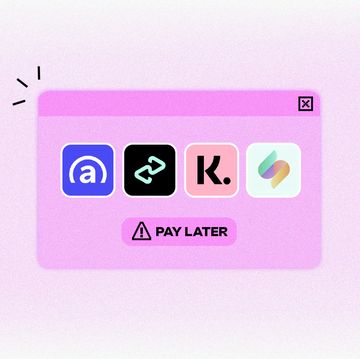
Are Buy Now, Pay Later Apps Bad?
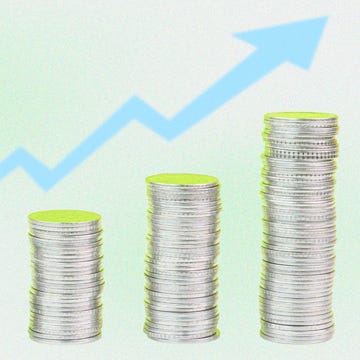
Your Guide to Investing (!!) Your Money

Zendaya Will Reportedly Make $1 Mil for “Euphoria”

15 Easy Ways to Make Money as a Teen
